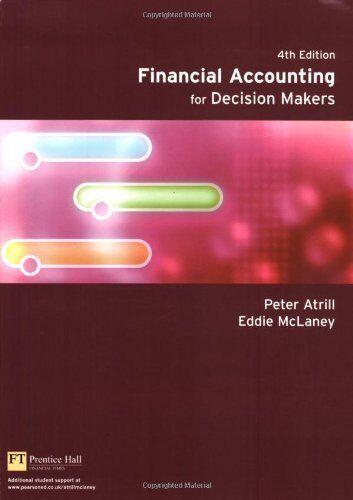Question
The term materiality is often used in auditing. Answer the following unrelated questions: a) Define materiality in the context of auditing. (2) b) When determining
The term materiality is often used in auditing. Answer the following unrelated questions: a) Define materiality in the context of auditing. (2) b) When determining materiality, the auditor uses professional judgement to decide what the financial information needs of the users of the financial statements are. In this context, what assumptions may the auditor reasonably make about the users? (4) c) Materiality (planning stage) is based on certain judgements. What do these judgements provide a basis for? (3) d) If a misstatement is detected which is below the materiality figure, can it be ignored? Explain your answer? (4) e) Provide four reasons, with brief explanation, why management may refuse to correct material misstatements in the financial statements which have been identified by the auditor. (8) f) List four circumstances where a misstatement which is not quantitatively material may be considered to be qualitatively material.
Step by Step Solution
There are 3 Steps involved in it
Step: 1

Get Instant Access to Expert-Tailored Solutions
See step-by-step solutions with expert insights and AI powered tools for academic success
Step: 2

Step: 3

Ace Your Homework with AI
Get the answers you need in no time with our AI-driven, step-by-step assistance
Get Started


